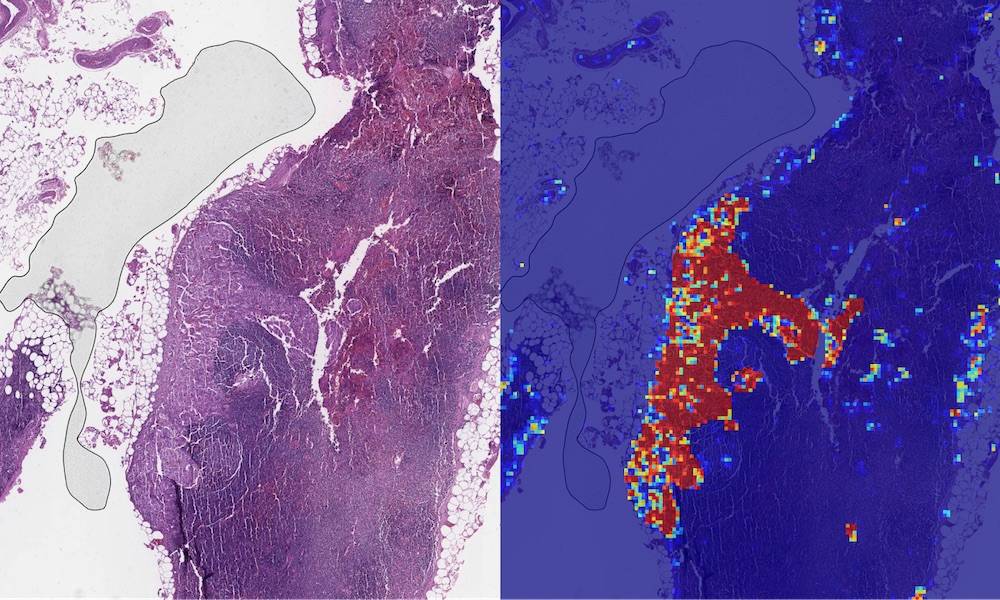Google Actually Created Cancer-Detecting AI with 99% Accuracy
 Credit: Google AI Blog
Credit: Google AI Blog
Toggle Dark Mode
Behind closed doors, Apple is rumored to be working on a range of FDA-approved health and diagnostic tools, which could possibly see their way into future installments of Apple Watch or even much smaller wearable gadgets.
The first-fruits of its burgeoning health initiatives can be seen in the company’s latest Apple Watch Series 4 models, which boast a number of medical and emergency health tools — such as an FDA-approved electrocardiogram (ECG) monitor, heart rate monitor, fall detection, SOS and more.
But while Cupertino forges ahead with its work in the medical, health, and technology fields, just a few cities over in Mountain View, California, Google is moving mountains with its own ongoing work on advanced machine-learning apps for medicine.
LYNA Tech for Cancer Detection
Google recently achieved a major breakthrough with regards to its work on deep machine-learning for medical applications.
With 99 percent accuracy, the company’s most up-to-date AI algorithm — dubbed LYNA, or Lymph Node Assistant — is not only able to detect metastatic breast cancer, but can even accurately highlight the location of cancerous cell formations and other “suspicious regions within Lymph nodes” in the body.

Citing a study published in the highly-respected JAMA Journal of Medicine, Google notes that human practitioners — unaided by technology, and when placed under time constraints — fail to diagnoses (or misdiagnose) metastatic cancer in 62 percent of cases.
Human-in-the-Loop Automation
While Google’s LYNA technology obviously won’t be able to replace human practitioners for a number of reasons, it could potentially offer these health professionals an important and highly-accurate tool to facilitate and fortify their findings.
As LoupVentures founder and former Piper Jaffray analyst, Gene Munster, points out, Google’s technology will enable doctors to “more accurately diagnose conditions in less time” via the unique human-machine collaboration.
According to Munster, this is all part of a much broader and burgeoning concept known as Human-in-the-loop Automation — where doctors and health professionals work with emerging, machine-learning technologies, like LYNA, to enhance their human capabilities.
“Human-in-the-loop automation involves human labor augmented – not replaced – by machines,” Munster notes, adding that, “In this case, a machine would make a first pass. screening samples and flagging possible positives for human review.”
Promising Results & Restrictions
Citing a study conducted by Google where six board-certified pathologists worked with LYNA in their daily practice, all reported that the technology not only reduced the amount of review time required for each slide, but overall made the diagnosis easier for them.
There’s still a long way to go before a product like LYNA will be commercially available, especially considering all the clinical trials and FDA hurdles it would have to pass along the way.
But, bearing the limitations of scientific research and controlled studies in mind, these early results are nonetheless promising and clearly point towards a future whereby integrating deep machine-learning and human medicine might dramatically improve diagnostic accuracy.






